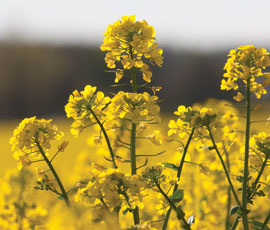Syngenta urges France to rethink neonicotinoid stance

Syngenta has written to farm ministers in France and The Netherlands to urge them to vote down an EU proposal to ban neonicotinoid pesticides.
Both countries have voiced their opposition against the continued use of neonicotinoids, which some scientists have linked to declining bee populations.
The letter says: “For over 70 years, Syngenta and our legacy companies have invested in researching and developing agriculture technologies in France which have enabled French farmers to produce safe, healthy, affordable local food.
“We’ve made that investment because France has always been a leader in innovation in agriculture. We want to continue providing these kind of technologies which we also believe can support your vision of sustainable agriculture where pesticide use is targeted and its volume reduced.
“Today, however, one of those technologies – neonicotinoid seed treatment – is under threat in spite of the fact that it is one of the most innovative, effective, and environmentally friendly crop protection technologies. With its low dose of 6g of active ingredient per hectare, which is 10-20 times less than the best alternatives, the technology fits perfectly with your vision of agriculture.”
The letter claims that the varroa mite and the diseases it transmits are the “principal causes of bee health”.
It asks why countries such as Scotland and Switzerland have poor bee health, despite their very limited use of neonicotinoid seed treatment. However, bee populations in Australia, where neonicotinoids are widely used, are “thriving”.
The European Commission is proposing a ban following a recent evaluation by the European Food Safety Authority (EFSA) of three neonicotinoids, produced by Syngenta and Bayer CropScience. The report identified a “number of risks posed to bees” associated with the use of clothianidin, imidacloprid and thiamethoxam.
But in its letter, Syngenta claims the EFSA evaluation on Cruiser (thiamethoxam) ignored key field studies and found “no unacceptable or unmanageable risks to bee populations”.
“Given the fact that thiamethoxam has been used on millions of hectares of French crops without damaging the health of bees over the past X years, it’s no surprise that EFSA acknowledged that its latest theoretical evaluation contained a ‘high level of uncertainty’,” the letter says.
Later this month, member states will be asked to vote on an European Commission proposal for a two-year ban on the use of neonicotinoids on crops considered attractive to bees, such as oilseed rape, maize, sunflowers and cotton.
France and The Netherlands support a ban, but the UK, Germany and Spain are understood to be against it. If enough countries vote against the proposal, a blocking minority of votes could derail a ban.
An industry source said: “For the proposal to be passed, there has to be a qualified majority – around two-thirds of the vote.
“The bigger EU countries have more votes than the smaller EU countries. If you were to get Spain, Germany and the UK to vote against a ban, then you would be running very close to a blocking minority.”
Up to £630m could be lost from the UK economy each year if neonicotinoids are withdrawn, an independently commissioned study by EU’s Humboldt Forum for Food and Agriculture (HFFA) and financed by Syngenta and Bayer CropScience has warned.

